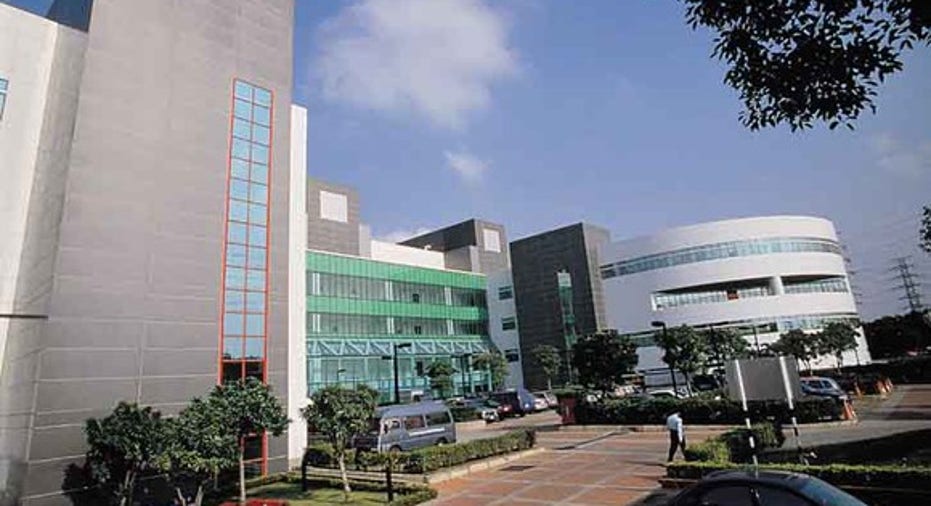Taiwan Semiconductor Mfg. Co. Ltd. Is a Better Investment Than Intel Corp.

The two largest chip companies by both revenue and market capitalization currently listed in the United States are Intel (NASDAQ: INTC) and Taiwan Semiconductor Mfg. Co. Ltd. (NYSE: TSM), or TSMC for short.
TSMC's Fab 3 chip plant. Image source: TSMC.
Intel's market capitalization, as of the close of trading on Dec. 9 sat at $169.75 billion, while TSMC's stood at $152.47 billion. Intel's trailing twelve-month price-to-earnings ratio is 16.82, while TSMC's is 16.18.
For all intents and purposes, these two companies are equally priced and equally valued. So, if an investor is looking to pour money into one of these two chip giants (highly profitable large-cap chip manufacturers), which is the better choice?
For investors deploying fresh capital today, the decision between these two seems simple -- TSMC. Here's why.
A healthier core
Most of TSMC's revenue (60% in its most recent quarter) comes from the manufacture of chips that go into communications products -- namely smartphones. TSMC builds all of Apple'slatest A10 processors, and it builds a lot of chips for Qualcomm, MediaTek, HiSilicon, and many others.
The smartphone market isn't expected to grow significantly from here on out it's a mature market, for sure -- but it's likely to continue to grow for many years to come. And, to the extent that smartphones continue to require increasingly advanced (read: expensive) chips (as well as simply more chips), TSMC could be poised to outgrow the overall market.
Intel's core market, on the other hand, is the personal computer market (a little over 56% of its revenue last quarter). It's large and highly lucrative to be sure -- it generates more revenue for Intel than TSMC's entire business does! However, the market simply isn't a growth market -- it's generally expected to decline over time.
So, TSMC's core market appears much healthier than Intel's.
Less risk, more opportunities
Both Intel and TSMC are going after a lot of different, sometimes intersecting, growth opportunities. The difference between the two companies, though, is that Intel is largely reliant on in-house product development and manufacturing.
TSMC, on the other hand, lets other companies do the product development work, and it merely serves as the manufacturer.
The advantage to Intel's model is that to the extent that it participates in those growth opportunities, it will get paid more than TSMC does, since it's not just selling silicon wafers, but complete solutions. One advantage to TSMC is that it will likely be building products for many companies going after the same market, so if those companies collectively succeed, TSMC wins.
Another benefit to TSMC's business model is that the incremental operating expenses required to support a customer's entry into a new market (or a new customer's entry into an established market) are fairly low.
Intel's business model necessitates that its internally designed products succeed in those markets. That means incurring significant expenses to define, design, build, and market those products (with those expenses happening in advance of revenue). If Intel isn't successful in those markets, then not only does it have to eat the operating expenses associated with developing and trying to market those products, but it doesn't see the revenue -- translating into financial losses.
And, finally, by servicing a very broad range of customers, TSMC can simply participate (albeit indirectly) in far more growth opportunities than Intel can.
10 stocks we like better than Taiwan Semiconductor Manufacturing When investing geniuses David and Tom Gardner have a stock tip, it can pay to listen. After all, the newsletter they have run for over a decade, Motley Fool Stock Advisor, has tripled the market.*
David and Tom just revealed what they believe are the 10 best stocks for investors to buy right now... and Taiwan Semiconductor Manufacturing wasn't one of them! That's right -- they think these 10 stocks are even better buys.
Click here to learn about these picks!
*Stock Advisor returns as of Nov. 7, 2016
Ashraf Eassa owns shares of Intel and Qualcomm. The Motley Fool owns shares of and recommends Apple and Qualcomm. The Motley Fool has the following options: long January 2018 $90 calls on Apple and short January 2018 $95 calls on Apple. The Motley Fool recommends Intel. Try any of our Foolish newsletter services free for 30 days. We Fools may not all hold the same opinions, but we all believe that considering a diverse range of insights makes us better investors. The Motley Fool has a disclosure policy.



















